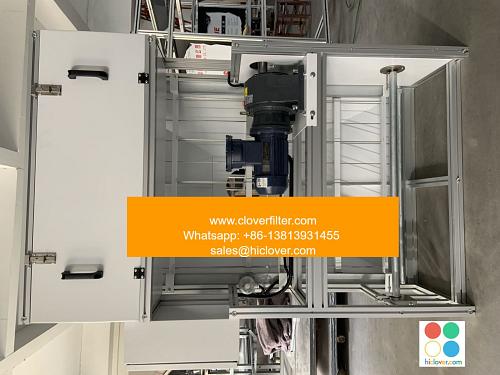Energy Efficiency and Air Filters: The Future of HVAC Systems

The integration of energy efficiency and advanced air filters is revolutionizing the Heating, Ventilation, and Air Conditioning (HVAC) industry. As the world shifts towards a more sustainable and environmentally conscious future, green technology and renewable energy solutions are becoming increasingly important. In this article, we will delve into the world of energy-efficient HVAC systems and explore the significance of high-performance air filters in maintaining a healthy indoor air quality while reducing energy consumption and greenhouse gas emissions.
Energy Efficiency in HVAC Systems
Traditional HVAC systems are notorious for being energy hogs, accounting for a significant portion of a building’s energy expenditure. However, with the advent of energy-efficient technologies such as inverter-driven compressors, variable speed fans, and smart sensors, it is now possible to significantly reduce the energy footprint of HVAC systems. These advancements enable real-time monitoring and optimization of HVAC performance, resulting in lower energy bills and a reduced carbon footprint.
The Importance of Air Filters in HVAC Systems
Air filters play a crucial role in maintaining indoor air quality by capturing particulate matter, pollutants, and allergens that can compromise the health and wellbeing of building occupants. High-performance air filters such as HEPA filters and activated carbon filters are designed to capture 99.97% of particles as small as 0.3 microns, ensuring a cleaner and healthier indoor environment. Furthermore, air filters can also help reduce energy consumption by preventing duct leakage and cohort buildup, which can lead to increased energy bills and reduced system performance.
Application Areas for Energy-Efficient HVAC Systems and Air Filters
The benefits of energy-efficient HVAC systems and high-performance air filters are not limited to residential buildings. These technologies have a wide range of application areas, including:
* Commercial buildings: Office buildings, shopping malls, and hotels can benefit from energy-efficient HVAC systems and high-performance air filters to reduce energy expenditure and improve indoor air quality.
* Industrial facilities: Manufacturing plants, warehouses, and data centers can utilize energy-efficient HVAC systems and high-performance air filters to maintain a clean and safe working environment while reducing energy consumption.
* Healthcare facilities: Hospitals, clinics, and nursing homes require high-performance air filters to maintain sterile environments and prevent the spread of infections.
* Transportation systems: Aircraft, trains, and buses can benefit from energy-efficient HVAC systems and high-performance air filters to improve passenger comfort and reduce energy consumption.
Conclusion
In conclusion, the integration of energy efficiency and advanced air filters is transforming the HVAC industry. By adopting energy-efficient technologies and high-performance air filters, building owners and operators can reduce energy consumption, lower energy bills, and maintain a healthy indoor air quality. As the world continues to shift towards a more sustainable and environmentally conscious future, the importance of energy-efficient HVAC systems and high-performance air filters will only continue to grow. It seems like you didn’t include a question or topic for me to discuss. Could you please provide more context or specify what you would like to talk about? I’ll do my best to provide a helpful and informative response.

